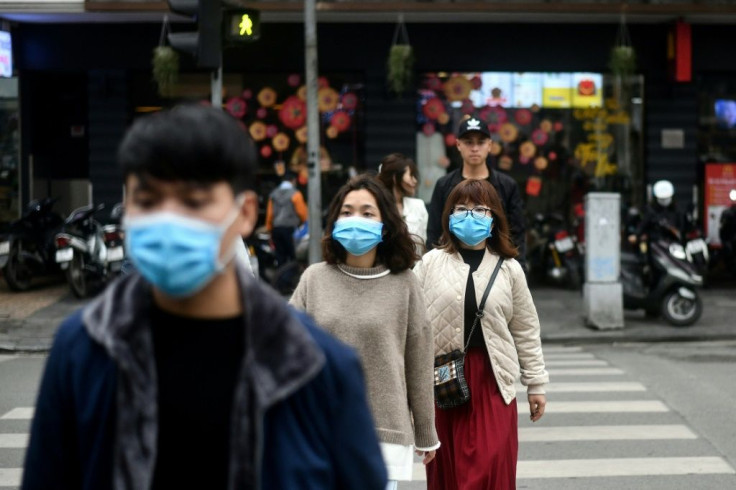Coronavirus Update: Latest Infection, Death Toll Figures

Coronavirus has infected 34,886 people worldwide as of Saturday, with the death toll climbing to 724.
Just two deaths have been confirmed outside of mainland China. There has been one death in the Philippines and one in Hong Kong. There have been at least 25 countries with confirmed cases of coronavirus.
One U.S. citizen, who reportedly was 60 years old, died from coronavirus in Wuhan, the U.S. Embassy said on Saturday. There has been no confirmation about the identity of the victim.
The World Health Organization has declared the crisis a global health emergency. The director of the WHO this week called for donations of £521 million ($675 million).
Governments have had various responses to the outbreak.
On Friday, the U.S. evacuated 800 Americans from Wuhan, the State Department said. France has shut down several schools where cases have been identified. China has put millions of its citizens on lockdown in order to prevent the spread of the virus.
The crisis has hurt international companies that operate in the Chinese mainland. Sportswear giant Nike has shut down half of its stores in China, with its other stores on limited hours. Apple and Google have closed all corporate offices and stores in the country.
The outbreak has affected the global economy in various ways.
Coronavirus has caused oil prices to rise, amid weakening Chinese demand. Australia could take a hard economic hit from the virus, as the country relies on Chinese tourists and students.
The crisis has caused analysts to downgrade China’s growth forecast, with some experts even stating that the outbreak could cause a global recession.
The outbreak originated at an animal and seafood market in the Chinese city of Wuhan. According to a report in the New York Times, the illness causes pneumonia and a systemic viral infection.
Dr. William Schaffner, an infectious disease expert at Vanderbilt University, told the Times that "the lungs, heart, liver, kidneys and the systems that control blood clotting are all affected."
© Copyright IBTimes 2025. All rights reserved.





















